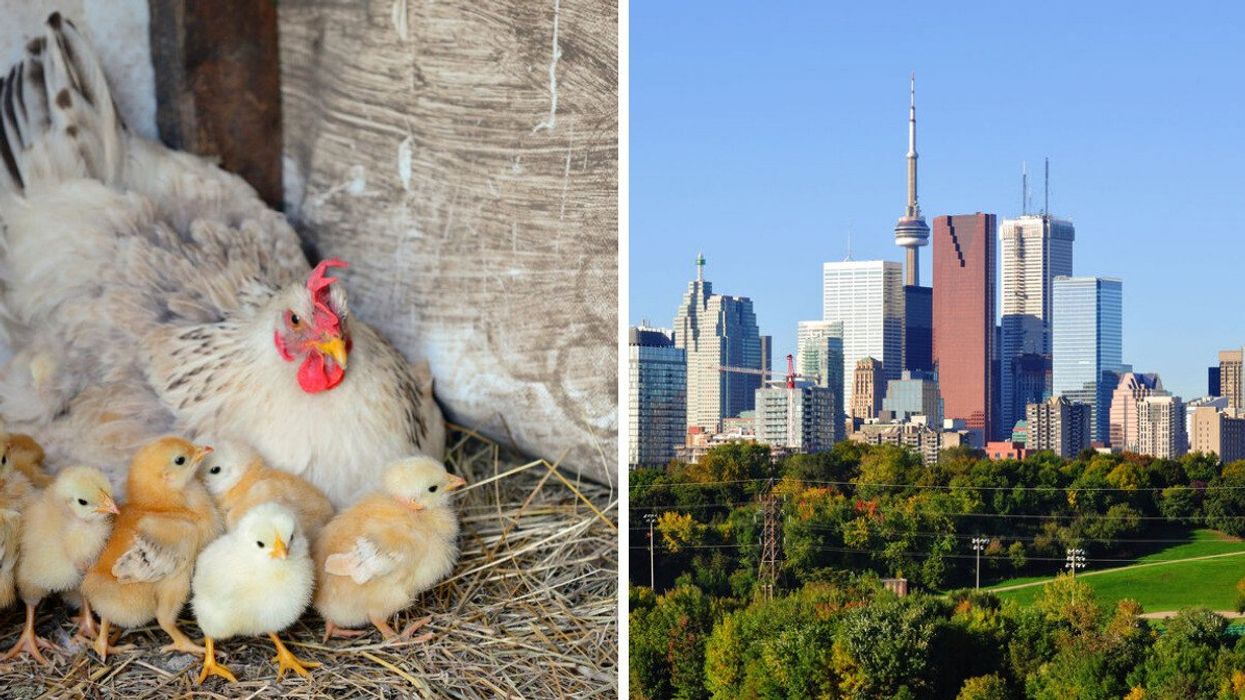You Might Not Be Able To Have Chickens In Your Toronto Backyards Anymore & Here's Why
It's not just about the avian flu 🐔.

A hen with her chicks. Right: the city of Toronto.
If your perfect vision of Toronto is one where backyards are thriving with farm life, sorry, this update might rain on your parade.
A recent report by the city recommended ending its successful UrbanHensTO pilot program this spring, which currently allows residents in parts of Toronto to house up to four chickens.
The program, first introduced in 2018, currently allows residents in Wards 4, 9, 10, 11, and 19, and parts of Wards 2, 3, 8, 12 and 14 to enjoy a slice of agriculture within the urban hub.
The city council is scheduled to consider the motion on May 10, 2023, so it could be some time before any impactful action is taken.
Although, if you're thinking of leaping at the opportunity to own a chicken in the city, you may want to look over the report's reasonings for axing the program, which included the following:
- The potential rise of Highly Pathogenic Avian Influenza (HPAI)
- The costs of an expanded program
- A potential for nuisance and rodent issues
Fears over the avian flu aren't new in Ontario. The Canadian Food Inspection Agency (CFIA) confirmed on April 1, that a domestic dog in Oshawa had tested positive for HPAI. It later died from the illness.
"HPAI continues to spread among wild and farmed birds globally. HPAI is a risk to commercial poultry operations and increasing the number of backyard coops may increase the risk of disease transmission," the city's report warns.
The disease, which can be carried by backyard poultry, can cause various symptoms in people if transmitted, including fever, chills, runny nose, body aches, vomiting and difficulty breathing, according to Ottawa Public Health.
However, it's worth noting that the transference of the flu to humans is considered rare.
The report also pointed out the various animal welfare challenges the program evokes.
"There are a limited number of veterinarians in the city able to provide appropriate care for hens and access to a veterinarian is critical to ensure a prompt response to HPAI and other emergency care," the report reads.
On the bright side, anyone currently participating in the program won't have to rehome their hens if the council decides to end it.
"Any households currently participating in the program would be permitted to keep their hens, in accordance with the terms and conditions of the pilot program, until the end of the animals' lives," the release concludes.
This article's cover image was used for illustrative purposes only.